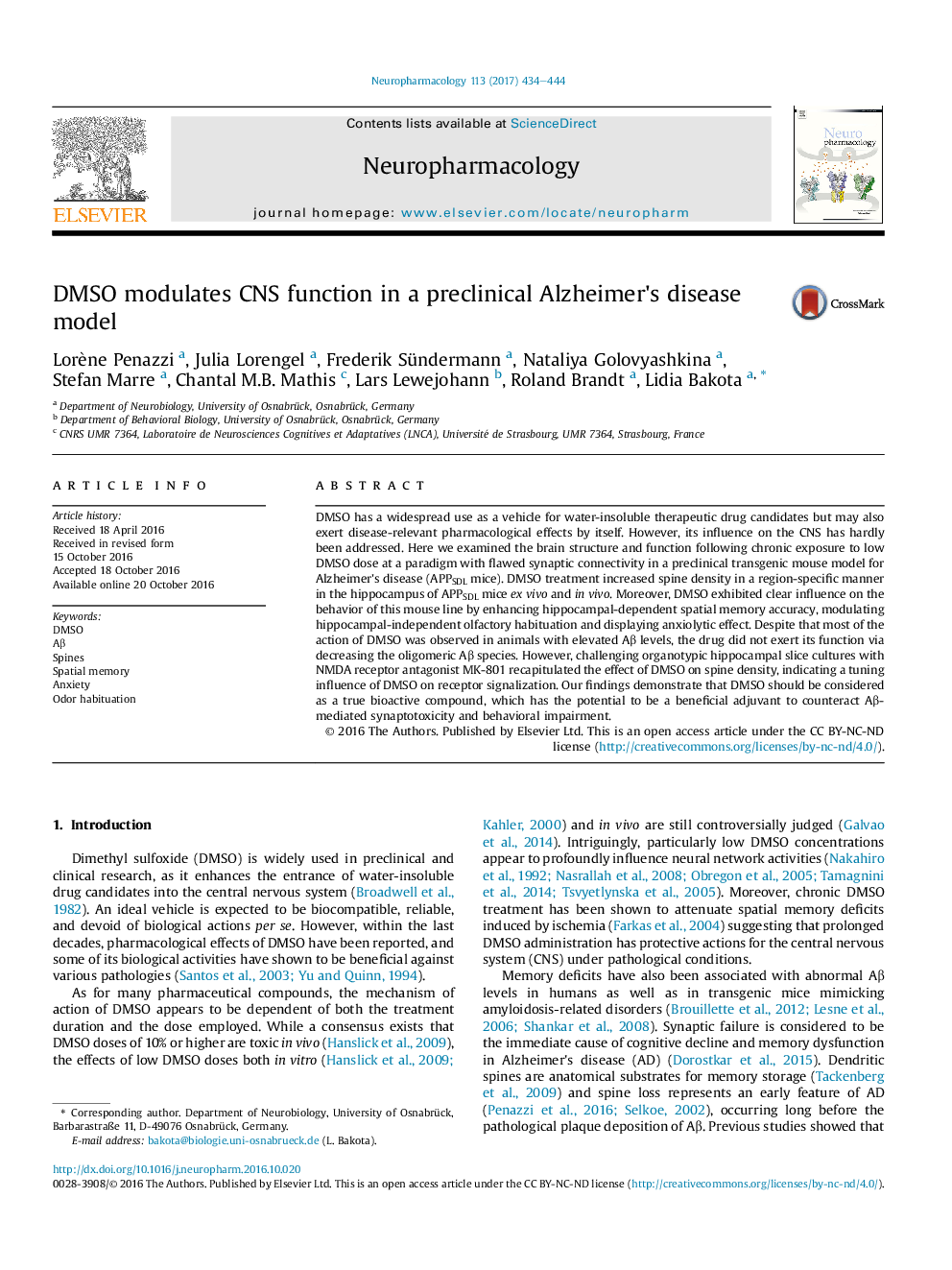| Article ID | Journal | Published Year | Pages | File Type |
|---|---|---|---|---|
| 5549164 | Neuropharmacology | 2017 | 11 Pages |
â¢Low amounts of DMSO modulate spine density in APPSDL mice ex vivo and in vivo.â¢DMSO tends to enhance hippocampal-dependent spatial memory accuracy in APPSDL mice.â¢DMSO modulates hippocampal-independent olfactory habituation in APPSDL mice.â¢DMSO displays anxiolytic effect in APPSDL mice.
DMSO has a widespread use as a vehicle for water-insoluble therapeutic drug candidates but may also exert disease-relevant pharmacological effects by itself. However, its influence on the CNS has hardly been addressed. Here we examined the brain structure and function following chronic exposure to low DMSO dose at a paradigm with flawed synaptic connectivity in a preclinical transgenic mouse model for Alzheimer's disease (APPSDL mice). DMSO treatment increased spine density in a region-specific manner in the hippocampus of APPSDL mice ex vivo and in vivo. Moreover, DMSO exhibited clear influence on the behavior of this mouse line by enhancing hippocampal-dependent spatial memory accuracy, modulating hippocampal-independent olfactory habituation and displaying anxiolytic effect. Despite that most of the action of DMSO was observed in animals with elevated Aβ levels, the drug did not exert its function via decreasing the oligomeric Aβ species. However, challenging organotypic hippocampal slice cultures with NMDA receptor antagonist MK-801 recapitulated the effect of DMSO on spine density, indicating a tuning influence of DMSO on receptor signalization. Our findings demonstrate that DMSO should be considered as a true bioactive compound, which has the potential to be a beneficial adjuvant to counteract Aβ-mediated synaptotoxicity and behavioral impairment.
